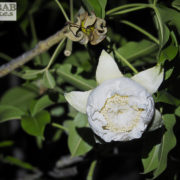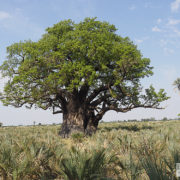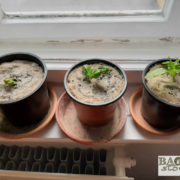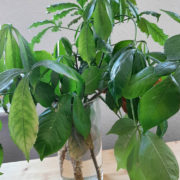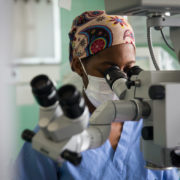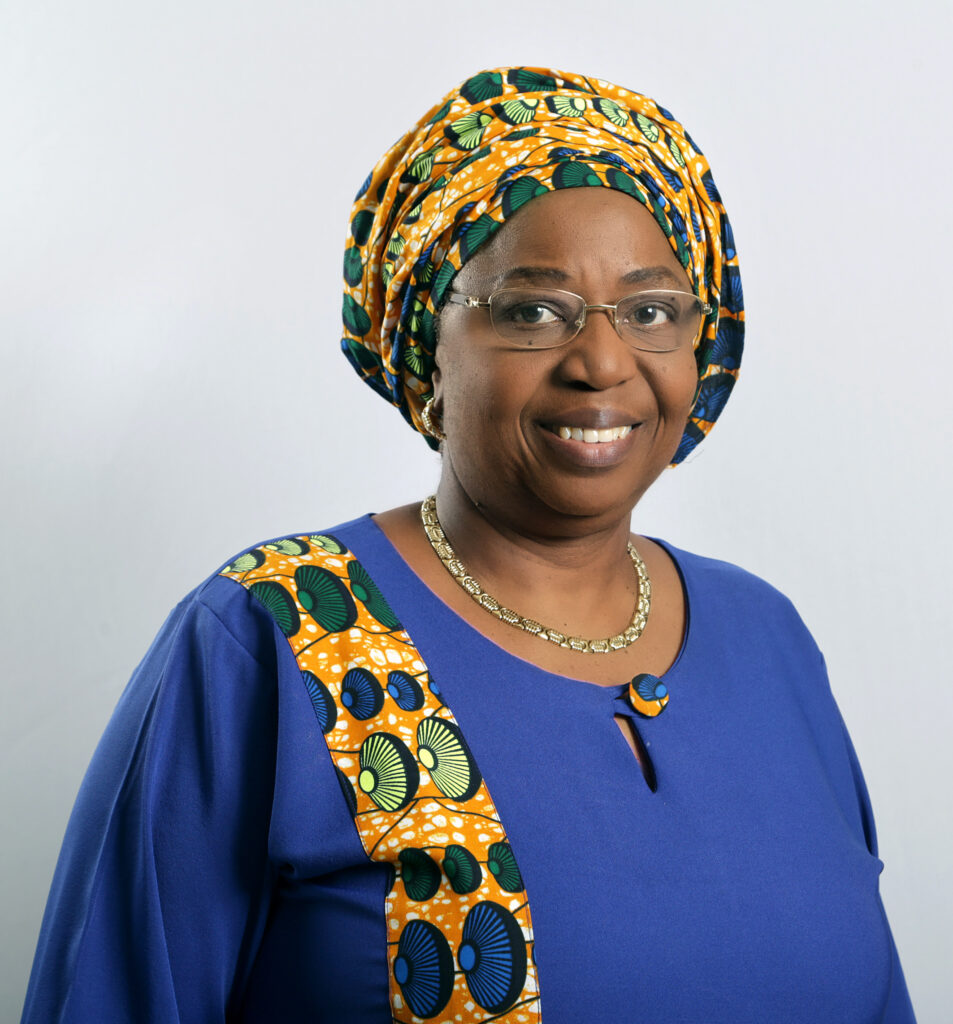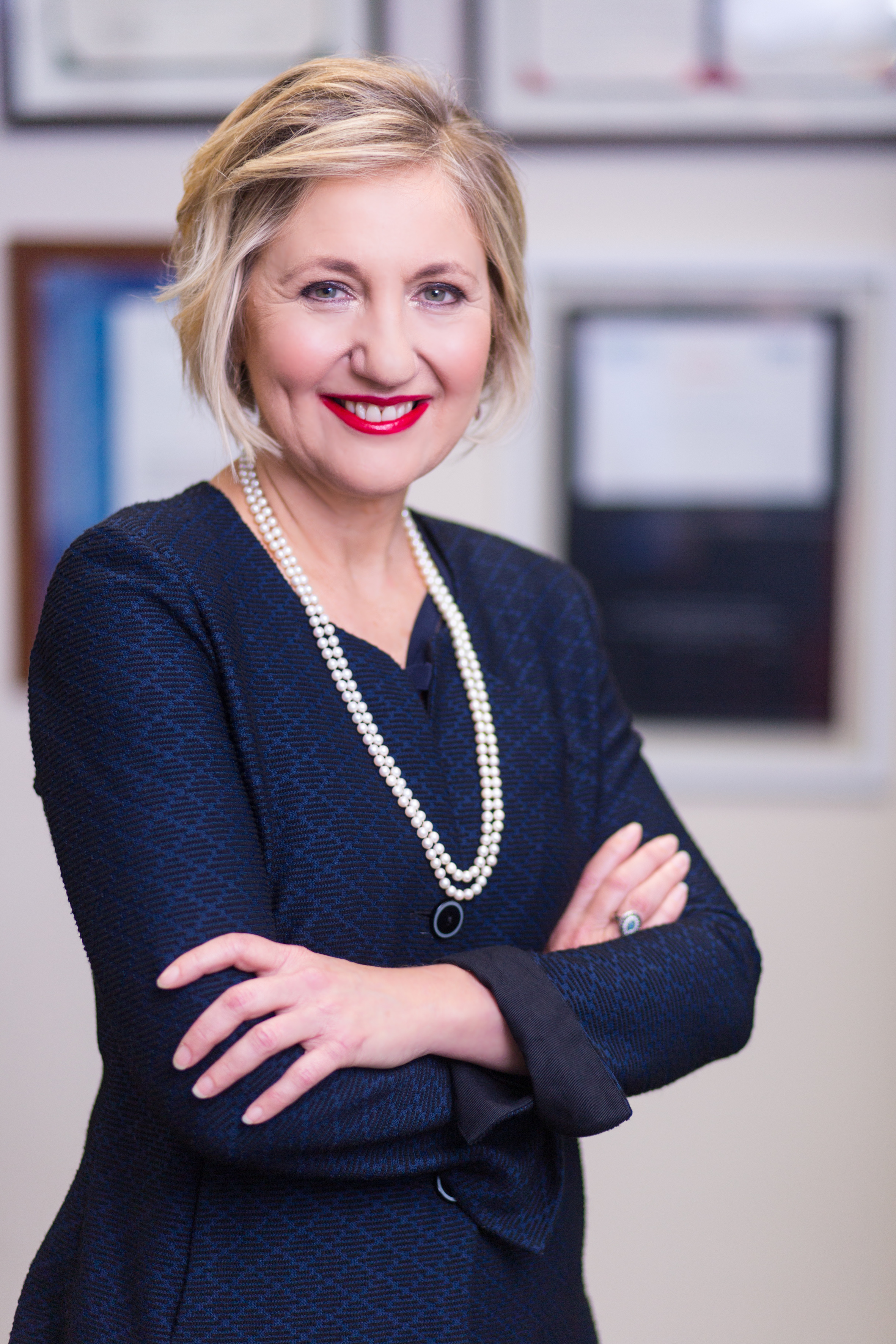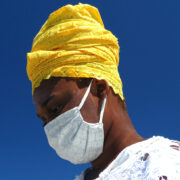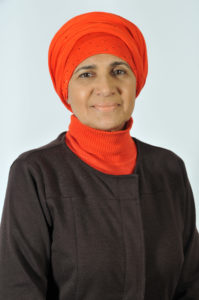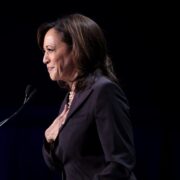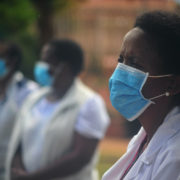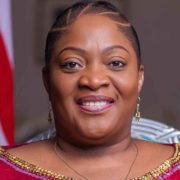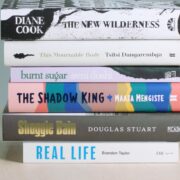The right mechanisation partner is crucial – African Farming
Selina Pinky Hlabedi is in the fields early, inspecting the maize’s moisture to see if it’s ready for harvest. “This period, June to July, I must harvest, so I’m here checking,” she tells Lindiwe Sithole presenter of African Farming. And with this, Hlabedi demonstrated the kind of dedication that has made her a success. Sithole visited Hlabedi during the first episode of the second season of the show that airs on Mzansi Wethu (channel 163 DStv).
Before establishing Ba Kwa-Hlabedi Farming in Gauteng, Hlabedi worked for some high-profile people such as former police commissioner George Fivaz. But she left politics and public service to serve South Africa in a different way. She now contributes to food security.
Hlabedi has a formidable list of accomplishments in agriculture, including spending time in the USA studying farming practises. However, it was the cattle and maize on Hlabedi nearly 500-hectare farm that Sithole was interested in. There is a herd of 36 cattle, comprising Bonsmaras and Simbras. She also grows maize and some vegetables. Recently she started planting and bailing her own feed for her cattle.
=
Sithole asked Hlabedi about future diversification and Hlabedi admitted it is extremely important to her. She said she might even bring back commodities she farmed with in the past, such as sheep.
“I am also considering expanding vegetable production so that we are able to package it and supply to retailers,” she said.
But with growth in any farming operations comes growth in mechanisation. Therefore, Sithole asked Cobus du Toit, John Deere Export Sales Manager and member of the expert panel on African Farming, how mechanisation can contribute to Hlabedi’s success in the future.
“With mechanisation timing and planning is crucial, so you need proper mechanisation partners,” said Du Toit.
“The solution for Pinky is in the feed-making process. She’s got primary tillage; she’s got planting and also harvesting. She can use that same equipment to create feed for her feedlot or animals.”
He stressed again the importance of timing. Du Toit explained that should you need to cut the feed, it has to be at the right protein levels. Or if you are planning to bail or forage you need to be there at the right time.
“That is why it is important that you select the correct partner in that mechanisation space,” he said.
“And then of course you must also have the right business partner, someone who can inform and assist you when needed.”
When it comes to partners, a farmer won’t find a better one than John Deere. This company has been conducting business in South Africa for the past 50 years. In 2013 they opened a R150-million state-of-the-art parts warehouse in Johannesburg. The facility serves more than 50 John Deere dealers countrywide.
For information: Contact your nearest John Deere dealer, or John Deere’s office at 0080 098 3821, email: africa@johndeere.com or visit, www.deere.com/sub-saharan/en.
Women in Science: These three gamechangers are transforming healthcare in Africa
Health is a big topic of conversation in Africa. In particular, women and children are more likely to be impacted by health issues such as malaria, HIV/AIDS and malnutrition. Yet while women represent 70% of health workers worldwide, only 25% of the top health leadership positions are filled by women.
It has been more than a year since COVID-19 was declared a pandemic by the World Health Organization. We speak to three female scientists who are revolutionizing and leading the continent’s fight against COVID-19.
Professor Awa Marie Coll-Seck ( Senegal)
It’s not only today’s scientists that we must encourage, but our future talent too, particularly inspiring young women…I strongly believe in the immense power of young people as changemakers, innovators and leaders.
Professor Awa Marie Coll-Seck’s extraordinary career spans over 40 years. After studying medicine in Dakar, in Senegal, she specialized in infectious diseases, including malaria, measles, meningitis, tetanus, typhoid, tuberculosis, HIV/AIDs and cardiovascular diseases – publishing over 150 papers on these health issues. Following seven years working as Minister of Health and Social Affairs for Senegal – one of the first female leaders to assume this role – she has since been nominated as Minister of State.
Professor Coll-Seck has dedicated her time and expertise to fighting a range of health issues – from serving on the board of the RBM Partnership to End Malaria, to her appointment to Ban-KI Moon’s high-level advisory group for ‘Every woman, every child’.
During the pandemic, Professor Coll-Seck is fighting the circulation of fake news and misinformation about the coronavirus. As immunization programs begin in Senegal, her attention has turned to tackling the challenges that come with such programs and engaging communities to play their part in the response to COVID-19.
She says: “Immunization programs have already been proven crucial for accelerating our fight against disease in Africa. Diseases including whooping cough, diphtheria, tetanus, measles or meningitis and yellow fever have all been significantly reduced as a result. It is crucial that citizens have access to the facts about interventions like vaccines to make informed decisions about their health to avoid mistrust or misunderstanding. African scientists have an important role to play!”
This year, she will judge the newly established Africa Young Innovators for Health Award, to support young, talented African scientists to develop transformative innovations that could change healthcare in Africa as we know it. She comments “It’s not only today’s scientists that we must encourage, but our future talent too, particularly inspiring young women, as less than 30% of the world’s researchers are female. I strongly believe in the immense power of young people as changemakers, innovators and leaders.”
Professor Glenda Gray, South Africa
No man is going to truly understand the unique challenges and barriers that women are facing…I hope I can inspire other young girls to pursue a career in science like I did, to make a real difference in the fight against disease on the continent.
Professor Glenda Gray is CEO of the South African Medical Research Council, and works as a professor of Paediatrics at the University of Witwatersrand. Glenda was awarded South Africa’s highest award, the Order of Mapungubwe for her leadership and research in mother-to-child transmission of HIV/AIDS, policy formation and advocacy.
In 2020, Professor Gray was appointed by South Africa’s Minister of Health as one of 50 Special Advisors on COVID-19 in South Africa. She has since been appointed head of the Johnson & Johnson implementation study, which aims to immunize between 350,000 and 500,000 health workers in the country.
Since the start of the pandemic, South Africa has experienced the greatest burden of COVID-19 throughout Africa, putting extraordinary pressure on the country’s health workforce to control the virus. Professor Gray and her team singlehandedly negotiated with the pharmaceutical company and battled red tape to secure vaccines for their study and get them to health workers in record time. The program has since been rolled out, which she refers to as a “tremendous achievement”.
Prior to the pandemic, Professor Gray specialized in the areas of HIV/AIDS and reproductive health. She explains: “These are both issues that disproportionately affect women in Africa. Diverse representation in science is important, as we all have different motivations or perspectives on an issue which help to uncover appropriate solutions. No man is going to truly understand the unique challenges and barriers that women are facing, so a woman’s experiences can provide crucial insight to finding appropriate solutions for these challenges.”
“I decided I would train as a doctor when I was just a young girl. I hope I can inspire other young girls to pursue a career in science like I did, to make a real difference in the fight against disease on the continent.”
Dr Natalie Mayet, South Africa
Helping protect others against the devastating impact of disease motivates me just as much now as it did when I chose to study medicine at the very early age of 5 years.
Dr Natalie Mayet has been working to improve public health for over 38 years. As a leader in the health service at local government, an Occupational Health Physician responsible for global pandemic preparedness in the private sector and now as the Deputy Director of the National Institute of Communicable Diseases in South Africa, she knows a thing or two about disease, and importantly, how to tackle it.
Dr Mayet is the immediate past Chair of the International Association of National Public Health Institutes for Africa promoting the development of National Public Health Institutes in the 55 member states across Africa, a vision that is promoted through her various roles at Africa CDC. During her career, Dr Mayet was responsible for the South African Field Epidemiology Training Programme and is passionate about developing and building the epidemiology capacity in health systems. This past year has demonstrated the crucial role of field epidemiologists in responding to outbreaks. She re-engineered the Notifiable Medical Condition Surveillance System for South Africa that provides the framework for surveillance of communicable disease.
Dr Mayet set up the country’s first Emergency Operations Centres at the NICD for the National Department of Health that supported previous outbreaks of public health significance such as the listeria outbreak. “During the COVID-19 pandemic, my focus has been on ensuring the latest data on COVID-19 is utilized effectively, to help inform our response to the disease. These daily updates are collated by the efforts of multiple teams functioning in unison to relay information to the Minister of Health, the provincial teams and the wider public”.
“This virus has been a devastating blow to Africa, however I feel it is important that people understand that there are other health crises like TB, HIV, Malaria, non–communicable diseases that have existed long before COVID-19 and that remain a challenge for individuals, for communities and for health services. We must learn from the experiences of COVID-19 to reinvigorate our collective responsibility for our health, strengthen our health systems and protect ourselves against future threats. Helping protect others against the devastating impact of disease motivates me just as much now as it did when I chose to study medicine at the very early age of 5 years. Our focus must be on prevention, the social determinants of disease, and engaging with our communities to find collective local solutions that ultimately contribute to global health security.”
African Voices of Science is an initiative led by advocacy tank Speak Up Africa that champions research and development on the continent. The initiative aims to generate an open public discourse on key health challenges and innovative solutions in Africa, and Africans’ role in tackling them.
7 keys to building positive relationships with difficult people
Is there a difficult person in your life whom you do not have the option to walk away from? While I do not promise that these steps will magically transform your relationship, I do know that you will achieve an empowered perspective by following them.
By Oma Edoja (Photo Shutterstock.com)
I was having a difficult time at work with someone I needed to work closely with.
I was the new girl. She was the established long-timer who had earned her respect. It appeared that to Ms. H, nothing I did was ever right. She constantly blurted out snide remarks about me and went behind my back to undo things I had done. We had at least one year to work together. I desperately needed to make this relationship work.
A trusted friend advised that Ms. H was a perfectionist and so I needed to bring my A game to the table. This brought very little comfort. I was already working myself sick over this job. However, I was determined to turn things around for the success of my career.
Over the next few weeks, I became more proactive. I completed tasks before they were due. I kept all paperwork up to date. I made sure that Ms. H had everything she needed to enable us to work together. During this time, I learned more about her. I learned that she bloomed with recognition and validation. In fact, she craved it. I decided to put some age-old wisdom to work: give people what they want to get what you need. I verbally acknowledged Ms. H’s skills. I asked her for help when I needed it. I made her shine before others on the team. I smiled wider, greeting her louder as I came in each morning. Before long, Ms. H was smiling wider and greeting louder too. She began saying my name in conversations with me whereas before, she had never bothered. The first day she tapped my arm as she spoke to me, I squealed inside, “It’s working, it’s working!”. By feeding her need for recognition and validation, I was gradually winning Ms. H over.
Most of us will at some point encounter difficult people we cannot do without. It is African culture to try to make relationships work rather than discard them at the first signs of difficulty. Indeed, difficult people are hard to deal with. The easiest reaction is to avoid them. But there are some you just have to get along with, to get what you want or to get where you are going. You do not want sparks flying every time you encounter them and you do not want them running roughshod all over you.
This is when I recommend finding and filling their emotional cup.
We all have one. Some of us are able to fill our own – by encouraging or validating ourselves, seeking the help or companionship of others, reading an inspirational book or engaging in spiritual exercise. People who proactively fill their own emotional cups tend to be happy, confident and resilient.
Then, we have those whose emotional cups are empty, whose emotional needs are unmet, who are unaware of their unmet needs or who have no idea how to fill them. These tend to be people in turmoil. They could present as needy and clingy or as demanding and domineering. If we can find and fill the emotional cups of the difficult people in our lives, those we cannot get away from and whom we just have to get along with, we have a better chance of a positive relationship with them.
7 keys to building positive relationships with the difficult people in our lives
- Know who you are
If someone is being difficult, they are the ones with the problem. You are separate from the situation and not defined by it. By keeping calm and in control, you hold the power to bring about the solution. I decided not to react to the snide remarks and sabotage, instead discussing things with a trusted colleague who helped me navigate forward. Instead of allowing the situation to get me down, I worked on keeping my cup full. - Filling your own cup
Surround yourself with uplifting influences; take stock of your achievements and celebrate them; pursue personal goals; follow a passion and connect with others who share it; make time to do the things you enjoy; enjoy family and friends; enjoy your own company; volunteer to help the less fortunate; engage in spiritually uplifting exercise; celebrate your own life, daily. These activities kept me self-charging through all the denigration. My opinion of me did not change with the negativity. I built up inner riches; I had more value to give. - Do the necessary
Do whatever it takes to build a positive relationship. At work, be professional and competent; in your marriage, or with a family member, invest quality time. Seek help from a professional counsellor or a trusted elder. Play your part and do not be found wanting. After a while, Ms H. had no more credible complaints. Instead, I began to earn her respect. Respect and negativity cannot coexist.
- Set targets and limits
What are you aiming for? Set clear targets or else difficult people will keep you jumping through endless hoops. I wanted a positive relationship for better productivity and enjoyment of my work. However, I was not going to keep jumping through hoops to please Ms. H. If after all my efforts there had been no change, I would have discussed my concerns with a more senior member of staff. - Build rapport
Find something you agree on, an aspect of work you both enjoy, a passion or interest you share; begin conversation about it. Pay them attention as you converse, making eye contact, listening, building rapport. With rapport, people open up. When they open up, you can discover their emotional needs. - Find the need and make regular contributions
Are they critical of others because they are critical of themselves? Is the passive aggression a plaster hiding insecurity? I discovered that Ms. H had personal troubles which threatened her confidence. By paying her compliments and making her shine, her need for recognition and validation was being filled. - Wean them off the attention
Let us bring this back into perspective. I was not taking on the lifetime role of ego massager to Ms. H. I was trying to build a positive relationship to support my career goals. Once our relationship improved, I kept up the professional competency but replaced the intensive care with the everyday things we do to keep relationships going. To this day, things have stayed positive and I am enjoying my job.
By daily filling your own cup, you can develop self-assurance and resilience. By taking stock of who you are, you can separate yourself from trying situations and become the solution.
What is COVIDHQ AFRICA – The New Platform about COVID-19?
COVIDHQ Africa is a new digital platform providing African perspectives and narratives of how Africa is navigating the pandemic. As the continent rolls out COVID-19 vaccinations amid lingering misinformation, the platform’s role has become increasingly key. Find out more.
COVIDHQ Africa , driven by the Mastercard Foundation in partnership with Zain Verjee Group, COVIDHQ Africa is a platform where Africans are documenting and sharing their experiences with COVID-19, including vaccination rollouts, as well as the knock-on effects of lockdowns and restrictions.
“Early in the pandemic, we realized that misinformation could be just as detrimental as the disease itself,” says Dr. John Nkengasong Director of the Africa Centres for Disease Control and Prevention (Africa CDC), which has partnered with the Mastercard Foundation on COVIDHQ Africa.

“It is vital that we provide citizens across the continent with factual information about COVID-19 and COVID-19 vaccines from trusted public health sources in Africa.” Dr John Nkengasong
“This remains true even now, as we roll out vaccines and vaccination campaigns that depend on public understanding and trust. It is vital that we provide citizens across the continent with factual information about COVID-19 and COVID-19 vaccines from trusted public health sources in Africa,” he added.
The writers, thought leaders, artists, and activists featured on the platform (mostly young people) speak openly and honestly about their struggles during the pandemic, as well as the ways in which they are learning to innovate and practice resilience.
They tackle a range of issues—mental health, love and relationships, climate change, vaccine equity—through a variety of mediums, including personal testimonials, poetry, satire, video diaries, and opinion editorials. The result is a nuanced, vibrant, and colourful narrative of how Africa is navigating a once-in-a-generation pandemic.
“Stories are powerful,” says Reeta Roy, President and CEO of the Mastercard Foundation, adding: “Storytelling is a rich part of Africa’s history. This platform was built for individuals, particularly young people, to tell their stories—and offers the world an opportunity to listen and learn.
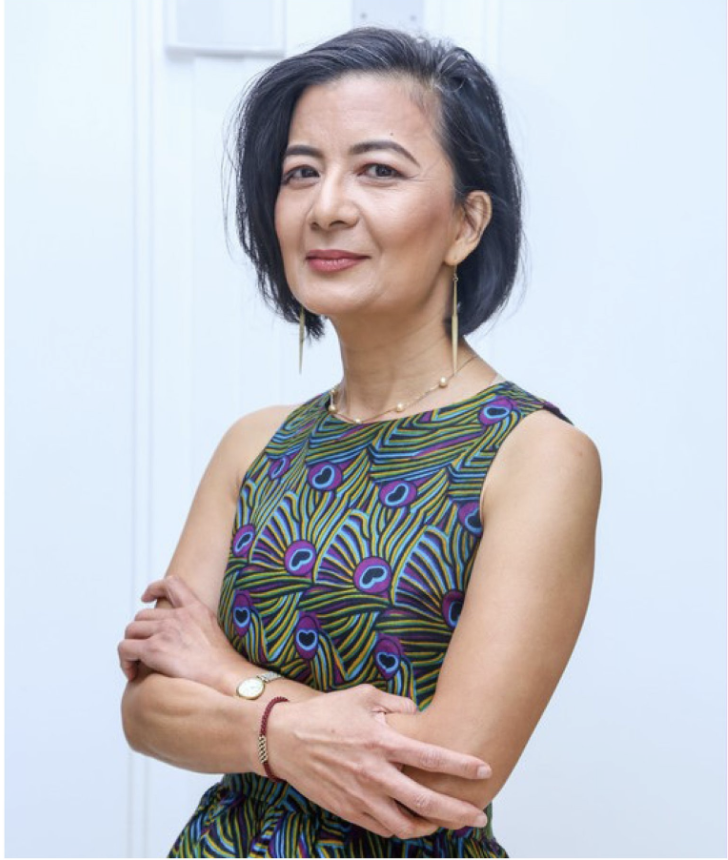
“Storytelling is a rich part of Africa’s history. This platform was built for individuals, particularly young people, to tell their stories,” Reeta Roy
“It is also a trusted, online resource that provides relevant facts and public health information about COVID-19 in a dynamic landscape,” she further explains.
According to Zain Verjee, Founder and CEO of Zain Verjee Group, the platform is a place where Africans can obtain relevant information about COVID-19, as well as feel empowered by the stories of accomplishment and survival in the face of significant adversity.
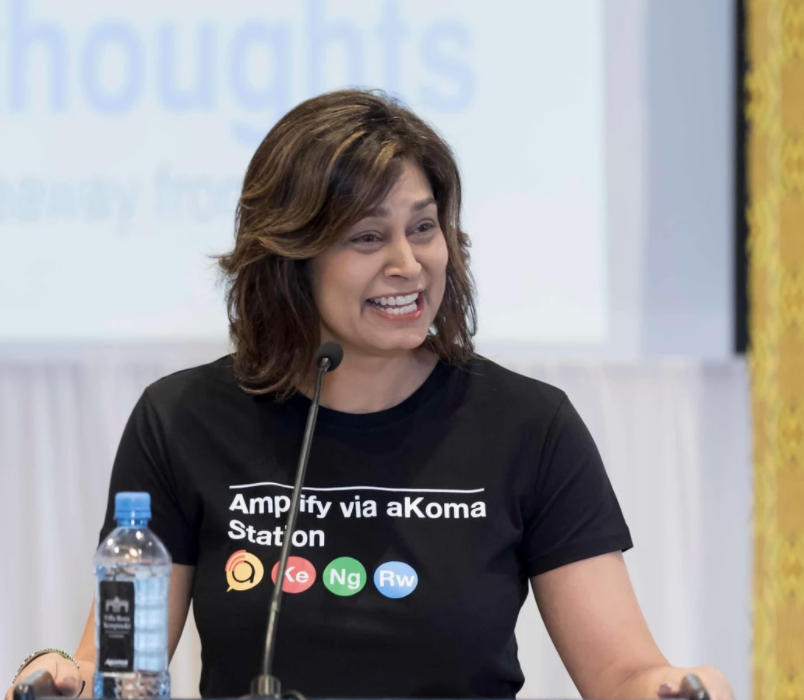
“This platform was designed and built to inform and inspire,” Zain Verjee
“We want to deal openly with tough stories like depression and mental health, in addition to highlighting positive solutions and innovations, and the latest updates on vaccines in Africa. This platform was designed and built to inform and inspire,” she says.
Alongside being a repository of stories, the online platform seeks to be a one-stop source for COVID-19 information across the continent. It provides up-to- date data on COVID-19 cases in Africa, sourced directly from the WHO, as well as the latest information on preventative health practices, and responses to frequently asked questions about vaccines.
Public health experts in Africa have stressed the importance of ensuring communities on the continent have access to accurate information on COVID-19 and vaccines, and warned about the risks that misinformation poses to effective public health responses.
COVIDHQ Africa is part of a broader public awareness campaign that is being carried out by the Mastercard Foundation. The campaign aims to deliver accurate, timely, and life-saving information on COVID-19 across African countries and communities.
Individuals who would like to contribute their stories to COVIDHQ Africa can do so by visiting the site.
Five ways to measure the effects of a crisis like COVID-19 on women
Social issues and crises tend to affect women more severely than men. This is why terms like “gender mainstreaming policies”, “gender-responsive interventions” and “gender-based budgeting” have become more popular in public policy discussions in recent years, writes Odile Mackett
The case has been made for the need to include gender in every analysis of social policy. But many of the toolkits which have been designed to do so have come up short. This is for a variety of reasons. Some of these shortcomings include a singular focus on women rather than relations between men and women; a focus on policy outcomes without a change in policy processes; and the inclusion of aspirational gender equality goals rather than goals for practical implementation.
But a framework developed by retired economics professor Marilyn Power offers a practical solution. Her framework can be used to evaluate the effects an event is likely to have on women. It can be applied to policies too. It draws together common aspects applied in gender studies and includes accounting for caring and domestic labour, considering human well-being, human agency, making ethical judgements, and undertaking an intersectional analysis.
I have used Power’s framework to examine the impact of COVID-19 on South African women. My research found that many of the challenges women experienced had been made worse by the pandemic. This was mainly as a result of the slowdown in economic activity and the restrictions on movement. These made women particularly vulnerable to physical abuse, a loss of income, and a decline in mental and emotional well-being, among others.
How women were affected
Household circumstances: The framework states that household circumstances should be considered in addition to individual circumstances. Household circumstances are vital when studying women because they tend to be the primary caregivers in the home, the number of female-headed households has grown, and they perform the bulk of domestic or household labour.
The importance of looking at both household and individual circumstances becomes clear when one looks at the impact of the COVID-19 pandemic. The closure of schools and early childhood development centres meant that women experienced an increase in their domestic responsibilities. Evidence shows that far more women than men reported increased time spent on childcare during the first few months of the hard lockdown.
Human well-being and agency: The pandemic affected both the well-being and agency of women.
Human well-being has been defined as “what people are able to be and do”. Amartya Sen, an award-winning economist, has recommended the use of five instrumental freedoms to measure well-being. These list aspects which define an individual’s relationship to their communities or the state. They include political freedoms, economic freedoms, social freedoms, transparency guarantees and protective security.
These freedoms include, for instance, having enough assets, the right to live a life of dignity, and the peace of mind which goes with feeling safe in one’s community.
Agency, on the other hand, has been defined by political analyst and feminist Lois McNay as “the capacity of a person (or other living and material entities) to intervene in the world in a manner that is deemed … to be independent or relatively autonomous”. Thus, the more freedoms individuals are guaranteed in society, the more their human agency will be enhanced.
During the pandemic women were more likely to lose their jobs than men. This loss had a major impact on women’s economic freedoms as well as their social freedoms.
Making ethical judgements: Ethical judgements in the framework relate to traditional economic assumptions which predicate that economic analyses or policies are value and judgement free. Others have argued, however, that policies and interventions which do not explicitly deal with value judgements only serve to mask “implicit assumptions about race, class and gender”, even if unintentionally.
It is thus important to engage with value judgements to make clear what implicit assumptions underlie public policy decision making.
One example of this was the South African government’s social security response to the pandemic, which included the Social Relief of Distress grant. This grant was only made available to unemployed individuals who didn’t get any other grant or qualify for Unemployment Insurance Fund benefits. The conditions under which the unemployed could apply for this grant were stringent – and still emphasised the need to work.
The stringent conditions meant that many vulnerable individuals were excluded. These included those who might already be receiving existing grants or received remittances from family members, but who might still be living in poverty. A large percentage of these would be women.
Intersectional analysis: This requires thinking about other social identities which define women beyond just their gender, such as race, sexual orientation and class, among others. These additional social identities privilege and disadvantage women in varying ways.
Black women, for instance, would be more severely affected by the social ills which have accompanied this pandemic than any other group of women in South Africa. Separating women by race in policy analysis would thus provide useful information which would not be otherwise observed had women been studied as a homogeneous group. Similar arguments could be made for further segmenting groups according to their social identities.
Next steps
Women make up half of the South African population. It’s therefore important to consider how decisions and policies affect them. Failing to undertake a gendered analysis doesn’t equate to men and women being treated equally. Rather that women are likely to be implicitly negatively biased.
Odile Mackett, Lecturer, University of the Witwatersrand
This article is republished from The Conversation under a Creative Commons license. Read the original article.
Photo credit. shutterstock.com/David Fadul
Interview: Jewel Taylor – Vice President of Liberia
Jewel Cianeh Taylor – Vice President of Liberia, is one of the few women in top political leadership positions in Africa. She spoke to Africa Renewal‘s Kingsley Ighobor on a range of issues: from barriers that disempower women, to COVID-19 which she contracted and survived after 35 days in intensive care. Excerpts:
You are one of few African women in top political leadership positions. Before you, there was Madam Ellen Johnson-Sirleaf who was Africa’s first democratically-elected president. How do you assess the progress that Africa is making regarding women’s political empowerment?
Since Beijing, Africa has made progress regarding women’s political and economic empowerment, but there are still many gaps. Currently, across the continent, there are only two female presidents and about four female vice presidents.
The percentage of women in governance in African is still very small, though rising slowly: women ministers constitute 20.7 per cent and women in parliament is 23.7 per cent, according to IPU [Inter-Parliamentary Union] statistics. So, there is still a long way to achieving gender equity.
What are the main barriers to women’s political empowerment?
The age-old barriers to women’s empowerment are structural, patriarchal, discriminatory laws and low capacities. We must eliminate all forms of violence against women and adopt parity laws. We must build and provide leadership training. We must encourage more He-for-She [global solidarity for gender equality] champions, eliminate and punish all forms of electoral violence against women.
The age-old barriers to women’s empowerment are structural, patriarchal, discriminatory laws and low capacities. We must eliminate all forms of violence against women and adopt parity laws.
How do you think African women can prepare to participate in politics, which is considered tough?
The truth is that politics is tough terrain, but it takes a clear vision, proper planning and execution of plans, commitment, hard work and consistency to succeed. Despite the many challenges, women should not allow themselves to be left out of the process.
And those who have broken the glass ceilings must be role models and must mentor others. Advocates of gender equality should continue to raise their voices.
Young people account for 65 per cent of Liberia’s 4.1 million population, yet youth unemployment is about 85 per cent. What is your government doing about it?
Youth unemployment is one of the biggest challenges facing our government. Youth employment is a key component of our Pro-poor Agenda for Prosperity and Development. To address unemployment, we need a strong private sector. At the moment we are creating the policy framework to attract the private sector.
We are tackling challenges in the energy sector by enacting the Independent Power Production Law, which will open this sector to the private sector. The good news is that there are huge opportunities in agriculture and tourism. We have also approved funding for the development of small and medium enterprises.
In addition, the government has a Youth Opportunities Project, which provides training and funding for cooperatives and support to young people in agrobusinesses. There are also several programs to train young people in entrepreneurship.
What are the top three achievements of your government so far?
The first is entrenching democracy. After taking the baton of power in 2018, our government has conducted many elections: several bi-elections and the 2020 senatorial elections. And the legal processes which attend contested elections have been successfully and peacefully followed up to the Supreme Court.
The second is that we carried out a process of harmonization that allowed the government to significantly reduce the wage bill by eliminating ghost names. Implementing a biometric identification card for all government employees eliminated discrepancies. We have redirected excess finances to other critical areas.
Third, our tuition-free policy for public universities and colleges announced by President Weah in 2019 and the payment by the government of all regional testing fees for WASSCE [West African Senior School Certificate Examination] have provided huge reliefs for parents. The scheme will increase school enrollments and literacy rates.
I would like to mention infrastructural development. A former minister of works once said that, “The road to development begins with the development of the roads.” This is so true for us. The government is rehabilitating existing roads (feeder and main highways) and expanding the road network. We plan to ensure that all capital cities in Liberia are connected by paved roads, especially in the southeastern corridor. We are grateful to our international partners who are supporting us.
This year (2021) marks the beginning of trading under the African Continental Free Trade Area (AfCFTA). Liberia has signed but has not ratified the agreement. What do you see as the benefits and challenges of free trade?
The AfCFTA is a major boost for African economies. We expect a 52 per cent boost in intra-Africa trade by 2022. Our government is aware that of the 15 countries in West Africa, only two countries, Liberia and Benin, are yet to ratify the agreement. In our case, the agreement is before the National Legislature and we hope it will be ratified soon.
Africa is the last frontier, with about 40 per cent of the world’s natural resources and the fastest-growing population globally. If Africa uses this leverage to implement an industrialized revolution, it can have sustained economic growth. We’re at a point where we need mutually rewarding partnerships, not just grants.
It’s time for an African industrial revolution. Africa’s resources have traditionally been taken out of our countries, processed abroad, and brought back. Now, African leaders are saying that we want investors to help build industries that process our natural resources locally. It is not just to take out raw materials.
Africa is the last frontier, with about 40 per cent of the world’s natural resources and the fastest-growing population globally…It’s time for an African industrial revolution.
How is Liberia dealing with COVID-19?
As you know, Liberia is a developing nation, and we have had our share of challenges, including a civil conflict, Ebola and now COVID-19. Following the outbreak of the pandemic, the President [George Weah] established a rapid COVID-19 Response Unit chaired by the Ministry of Health and includes other relevant government agencies and international partners. This unit meets daily to assess the situation and to address challenges. Over a year ago, we instituted a national emergency, mandated testing and social distancing, and we continue to raise public awareness about the pandemic. We opened two new hospitals to treat COVID-19 patients. As a result of our robust response effort, we are seeing a reduction in COVID-positive numbers.
How are you addressing the socio-economic impact?
No doubt, economic activities have been severely affected. Schools were closed. There was an increase in sexual and gender-based violence across the country, as well as a drastic loss of income for women who are the primary providers and caregivers in our society.
The National Legislature approved a national stimulus package, including food rations and money to severely affected homes, and suspended taxes to allow companies and businesses to survive. We halted ongoing development projects and even redirected finances for such projects to the healthcare sector and to respond to the social and economic needs of our most vulnerable.
You contracted the COVID-19 virus. What was your experience and what message would you send to people who may still be skeptical about the disease?
I hope my voice, and the voices of others who contracted the disease will let people know that this pandemic is real. I am not sure of how or where I contracted this disease, but I did. I was severely ill and spent 35 days in the Intensive Care Unit and another 10 days just getting my breathing stabilized.
COVID-19 is not a hoax or a conspiracy theory. If we follow the health protocols, especially wearing face masks, social distancing, and getting tested immediately when we fall ill, coupled with vaccination, I am hopeful we can defeat the disease.
How is vaccination going in Liberia?
We received about 100,000 vaccines. The vaccination process is going well. People are being vaccinated. I have been vaccinated myself…
I hope my voice, and the voices of others who contracted the disease will let people know that this pandemic is real…COVID-19 is not a hoax or a conspiracy theory
How is Liberia preparing for a post-pandemic recovery? What are your top three priorities?
We have more than three priorities. Let me emphasize that our national budget reflects our priorities—health, education, roads, jobs and the provision of basic social services to our people, including water and electricity. We are having meetings with our international partners and friends to establish a post-COVID-19 roadmap and stabilization funds.
Photo: Jewel StarFish Foundation
We would like to re-energize agriculture and invest in infrastructure to jump-start economic activities. We hope to restore macroeconomic stability, encourage sustainable growth and private sector-driven development. Our focus is shifting to industrialization and the processing of our natural resources. We believe that the creation of a vibrant private sector is the best way forward.
What message of hope do you have for Africans, particularly women, who see you as a role model?
My message is simple: dream, prepare, build, remain committed, and don’t forget to encourage and mentor others. This is the formula for success, whether you are a man or a woman. The world is for the strong, the bold, the creative and the committed. Keep in mind that everything is possible.
—-
For more information on COVID-19, visit www.un.org/coronavirus

